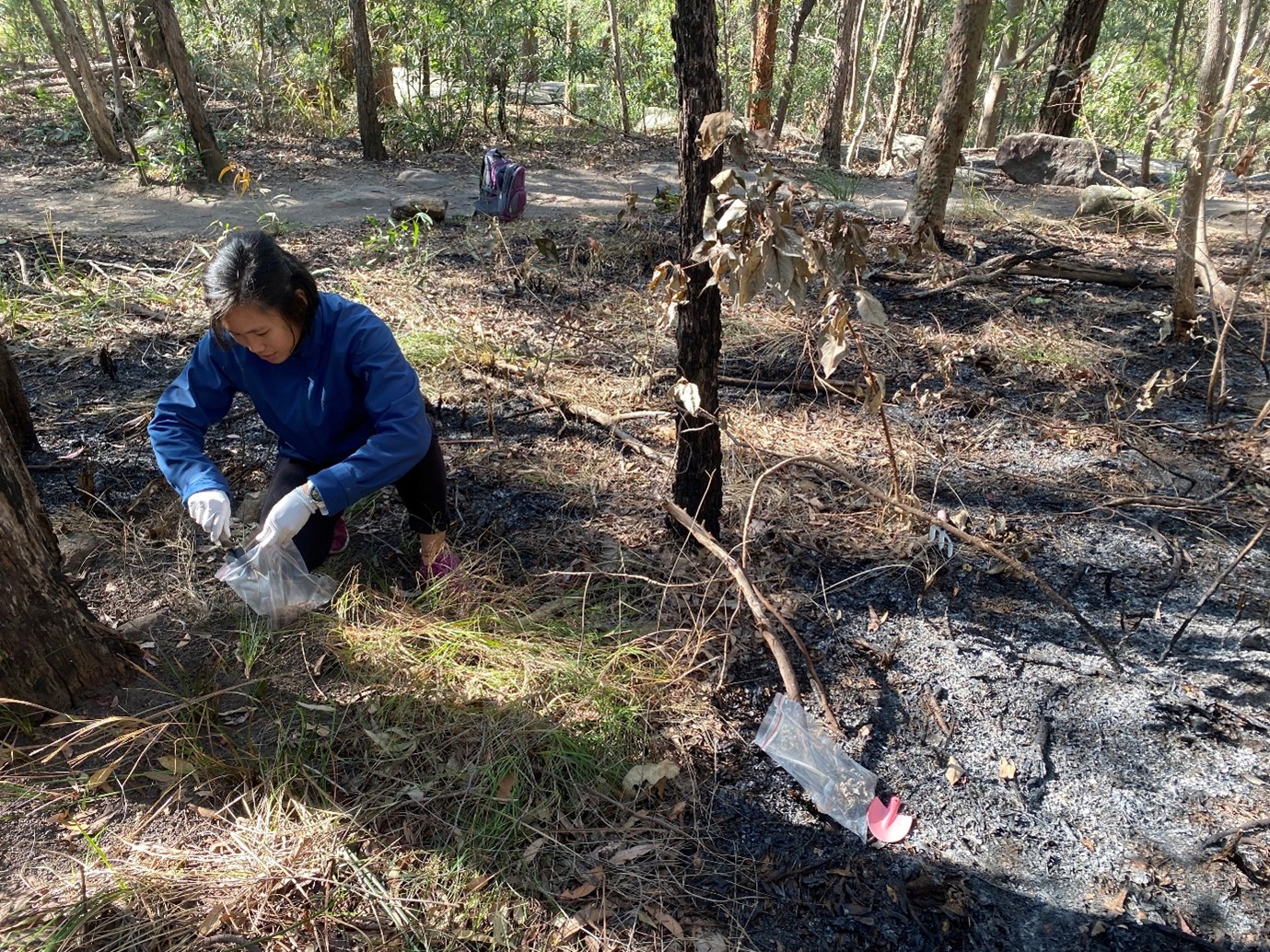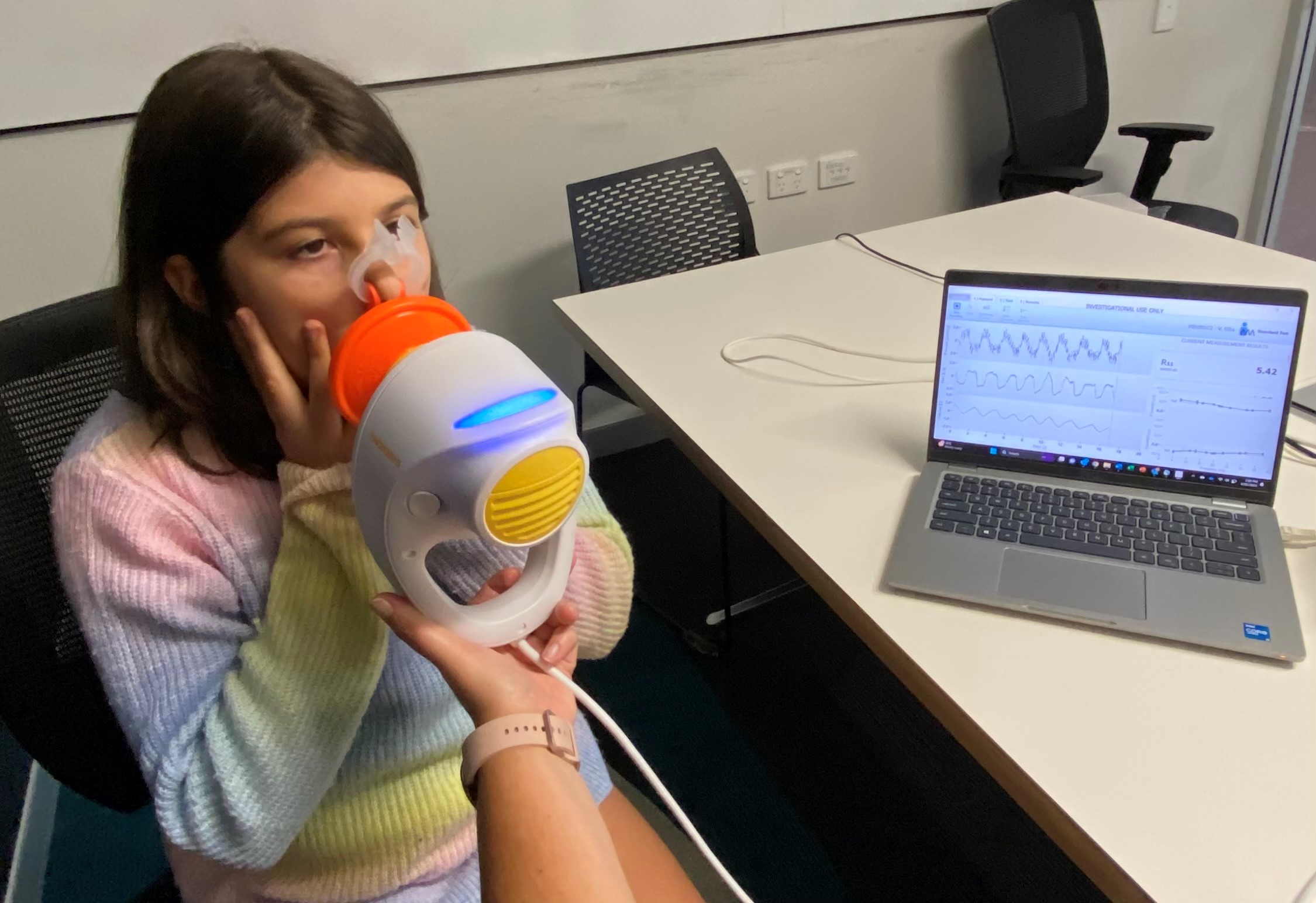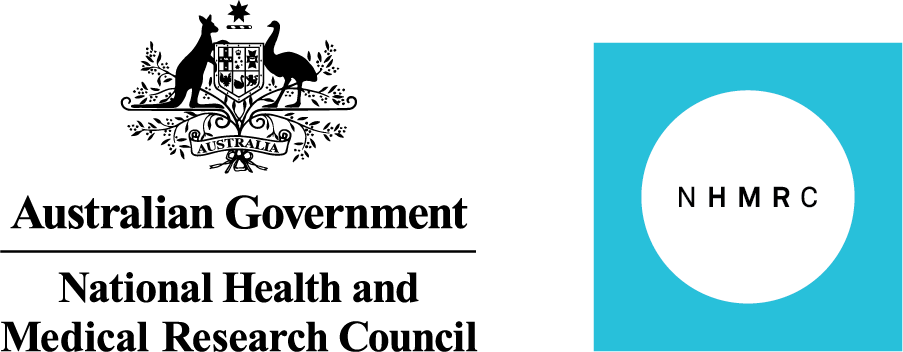Bushfires and their health impacts are a national concern. The EMBER Study is a holistic assessment of bushfire smoke exposure in homes and the relationship with health outcomes for parents and children. EMBER combines environmental assessment, exposure assessment and health assessment, with the aim of protecting the health of communities during bushfire smoke events.
Start date: January 2024
Funding sources: National Health and Medical Research Council, The Thoracic Society of Australia and New Zealand

Environmental assessment
The EMBER study undertakes environmental assessment of bushfires and hazard reduction burns to understand pollutant profiles of smoke, with the aim of providing scientific evidence to support policy decisions.
We use cutting edge drone technology from the United States EPA to study particulate matter and other atmospheric toxicants released from the bushfires in real time. We also study charcoal from the bushfires, soil and vegetation.

Exposure assessment
Understanding how much smoke residents are exposed to during a fire event is important to understand human exposure. The EMBER study uses low-cost monitors to assess air quality in homes during bushfires and hazard reduction burns to look at smoke in the outdoor air, penetration of smoke into the home, and measure biomarkers of smoke exposure measurable in urine. From these data we can build a complete picture of exposure from source to internal body systems.

Health assessment
Our unique study model allows us to explore the short-term effects of bushfire smoke exposure through repeated measurements of lung function, inflammation and oxidative stress during smoke events to gather valuable clinical data. The EMBER study will explore the health of children, adults and firefighters to build a comprehensive understanding of respiratory health and biological health effects in these three population groups.
Since bushfires and hazard reduction burns are highly unpredictable and dependent on weather conditions, our study team is actively seeking interested households across SEQ all year round.
Please note that registering your interest does not mean you are formally enrolled in the study or must take part in the study. In the event of a smoke event near your home, our study team will contact you to see if you are wanting to participate at that time.
If you are experiencing some smoke/burn event, please contact us ember@uq.edu.au as soon as possible.
What's involved?
All households are welcome to participate, especially households with an adult and a child. Upon enrolling in this study, our team members will organise a suitable time to visit your home – we will install air quality monitors and run through the study procedures and materials with you. You will be asked to complete a household survey about the characteristics of your house and your general health. You will be given an activity diary to track your household activities and behaviours, urine pots to collect urine samples, and a respiratory device to measure lung function. We will leave these study materials and devices in your home for around 7 days, during which you will take measurements at different timepoints. Our trained study team will be available to support you via Zoom or in person.
If you are interested in participating but unable to be home for our team members for the initial set up, we can leave the study pack with monitors, study materials and instructions on how to set up.
Newsletter sign up
If you are interested in the progress and updates of our research project, please sign up for our newsletters.
Are you part of a community group that would like to become a community partner? We have active partnerships with communities interested in our work. Contact us at ember@uq.edu.au to express your interest in becoming a community partner for our EMBER study.
Principal investigators
- Dr Dwan Vilcins
- Professor Peter Sly
- Professor Paul Robinson
- Dr Fisher Wang
- Professor Stephania Cormier (Louisiana State University)
- Professor Javaan Chahl (University of Southern Australia)
- Dr Nina Lazarevic (The Australian National University)
- Dr Brian Gullet (U.S. Environmental Protection Agency)
Study staff
Lab staff
Students
Publications
- Reply to Myers and Rosser: A Comment About Studying the Health Effects of Smoke Produced by Prescribed Fire
- Assessing the Impact of Wildfire Smoke Exposure on Lung Health: A Pilot Feasibility Study Using Prescribed Fires as a Model
Media
- InSight + Issue 39 (8 Oct 2024) – Using the arts to educate communities on air pollution
- INSPIRE magazine Issue 31 (Apr 2024) - Providing Evidence to Guide Public Health Messages during Bushfires, page 50-51
- The Conversation (Feb 2024) – Bushfire smoke affects children differently. Here's how to protect them
- Radio station – HIT and Triple M bulletins, 4BC Afternoons with Sofie Formica, 90 AM 4RO, ABC Capricornia FM, The Ray Hadley Morning Show, 4BC Breakfast, 612 ABC Brisbane, Triple M 104.5, Hit 90.9 Gold Coast, Triple M Gold Coast 92.5, 4BC Breakfast, Hit 105, Perth ABC
- UQ Research Reimagined podcast (Nov 2023) - The future of the world's children
- Fassifern Guardian (Sept 2023) - Study to investigate bushfire air quality
- The Medical News (Sept 2023) - South East Queenslanders encouraged to join UQ study on the health impacts of bushfire smoke
- UQ News (Sept 2023) - Families needed for study of bushfire smoke and health
Resources
Contact us
Get in touch to learn more about our research.
ember@uq.edu.au Children's Health and Environment Program website


